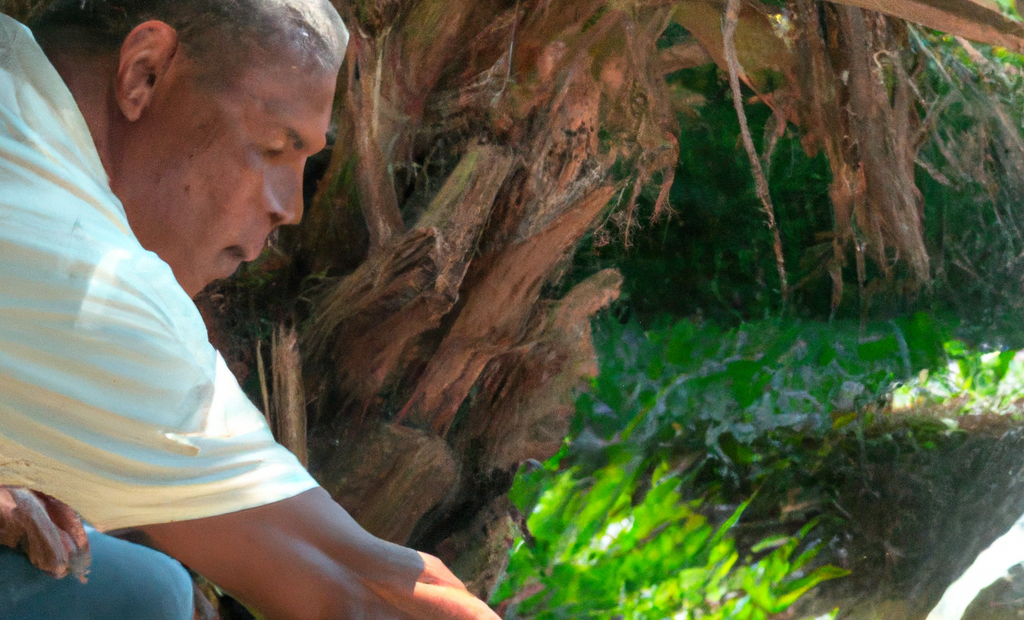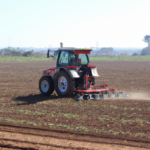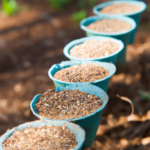The sections discuss the crucial role of biofertilizers in organic farming and water conservation. Biofertilizers improve soil water retention, reduce water pollution and increase water use efficiency. Additionally, organic farming, including practices such as crop rotation, contributes to water conservation. In summary, biofertilizers and organic farming are sustainable and innovative options for agricultural productivity and water conservation.
Water is an essential resource for life and, especially, for agriculture. However, its inappropriate use and lack of effective conservation strategies have led to a global water scarcity crisis. More than ever, it is necessary to adopt measures that promote water conservation in agriculture. This article analyzes different strategies for this purpose, highlighting the use of fertilizers, organic farming and innovation in agricultural products such as biofertilizers.
First, the impact of fertilizer use on water conservation will be explored, followed by an analysis of how organic farming can serve as an effective strategy to this end. Subsequently, innovation in agricultural products, particularly biofertilizers, and their potential to conserve water will be presented. Finally, the role of biofertilizers in water conservation in the agricultural sector will be discussed.
This article seeks to provide a comprehensive view of water conservation strategies in the agricultural sector, with the aim of promoting more sustainable and responsible practices.
- 1. "Use of Fertilizers and its Impact on Water Conservation in Agriculture"
- 2. "Organic Agriculture as a Strategy for Water Conservation"
- 3. "Innovation in Agricultural Products: Biofertilizers and Water Conservation"
- 4. "The Role of Biofertilizers in Water Conservation in the Agricultural Sector"
1. "Use of Fertilizers and its Impact on Water Conservation in Agriculture"
The use of fertilizers, specifically biofertilizers, can play a crucial role in water conservation in agriculture. Conventional fertilizers often upset the water balance in the soil and can contribute to groundwater contamination through runoff. However, biofertilizers, which are an integral part of organic farming, can improve soil water retention, thereby improving its ability to resist drought and reducing the need for irrigation. In addition, biofertilizers are agricultural products that promote the absorption of nutrients by plants, which can also lead to greater efficiency in water use. Therefore, including green fertilizers in water conservation strategies in agriculture can be an effective and sustainable solution.
2. "Organic Agriculture as a Strategy for Water Conservation"
Organic farming is presented as a key strategy for water conservation in the agricultural sector. The use of fertilizers can contribute to water pollution, but organic farming offers a sustainable alternative, focusing on the use of biofertilizers and agricultural products that are respectful of the environment. Biofertilizers help improve soil quality and increase water retention, reducing the need for irrigation. Additionally, organic farming promotes practices such as crop rotation and plant diversification, which also help conserve water. In this way, organic farming not only contributes to water conservation, but also promotes more sustainable and environmentally friendly agriculture.
3. "Innovation in Agricultural Products: Biofertilizers and Water Conservation"
Within the framework of organic agriculture, biofertilizers emerge as an innovative option in the field of agricultural products. These fertilizers are characterized by being of biological origin, which guarantees their sustainability and respect for the environment. But in addition, biofertilizers have considerable potential in water conservation. By improving soil health and increasing its ability to retain water, these products reduce the need for irrigation, contributing to more efficient use of this vital resource. Thus, fertilizers of biological origin not only promote agricultural productivity, but also water sustainability, being a key tool for the agriculture of the future.
4. "The Role of Biofertilizers in Water Conservation in the Agricultural Sector"
Biofertilizers play a crucial role in water conservation in the agricultural sector, enabling more efficient use of this vital resource. In organic farming, these agricultural products improve soil quality and promote plant growth, reducing the need for excessive irrigation. Biofertilizers, rich in beneficial microorganisms, improve soil structure and its ability to retain water, resulting in less dependence on irrigation. In addition, they provide essential nutrients for plants, replacing traditional chemical fertilizers, whose intensive use can lead to water pollution and soil degradation. Therefore, the use of biofertilizers not only promotes sustainability in agriculture, but also contributes significantly to water conservation.
Water conservation in agriculture is a vitally important issue, taking into account the increasing scarcity of water and the crucial role it plays in agricultural production. This article has highlighted the importance of fertilizers, particularly biofertilizers, in water conservation in agriculture. Effective use of fertilizers can help improve water efficiency in agriculture, thereby reducing the amount of water needed for crop production.
Additionally, organic farming has been shown to be an effective strategy for water conservation, promoting sustainable agricultural practices and the use of environmentally friendly agricultural products. Innovation in agricultural products, such as biofertilizers, also plays an important role in water conservation, as they can improve soil health and the ability of crops to absorb water more efficiently.
In conclusion, the adoption of water conservation strategies that include the use of appropriate fertilizers, the adoption of organic farming and innovation in agricultural products, particularly biofertilizers, can have a significant impact on the efficiency of water use. water in the agricultural sector. It is essential to continue researching and developing these strategies to ensure the sustainability of our food production in the future.


